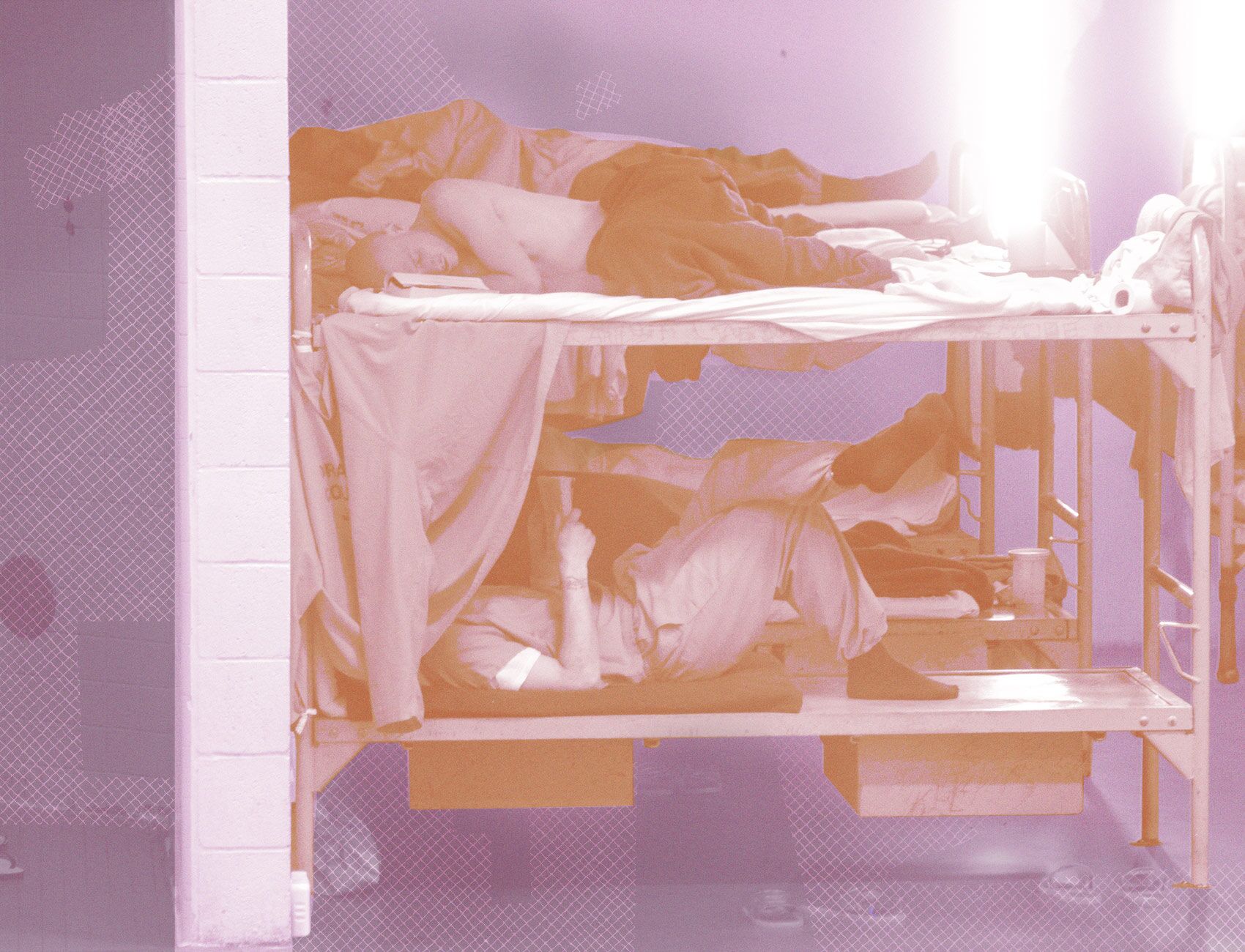Arkansas Allows Employees Who Test Positive For COVID-19 To Continue Working In The State’s Prisons
Attorneys for prisoners say the policy goes against public health warnings and will ‘promote and facilitate a viral outbreak.’

Despite warnings from health experts about the dangers of asymptomatic transmissions, Arkansas prison officials are permitting some staff members who have tested positive for COVID-19 to continue working.
In a court document filed Monday on behalf of 11 state prisoners, attorneys allege that the Arkansas Department of Corrections (DOC) is allowing employees who are confirmed to have the disease to return to work as long as they are asymptomatic and wear a face mask. The document was filed as part of a federal lawsuit over inadequate protective conditions within the state’s prisons.
On Tuesday, a spokesperson for the agency confirmed the policy, which was first reported Monday by the Arkansas Democrat-Gazette. In an email, spokesperson Solomon Graves provided state health department guidelines from April 15 that say staff members can return to work in places where there is a “critical shortage of workers and critical activities cannot occur without the use of these workers.” Employees are only allowed to work at facilities where prisoners have tested positive, according to the guidelines. Currently, there is one facility—the Cummins Unit—that meets this criteria.
Prisoners’ attorneys have criticized the policy, pointing out that it contradicts national guidance. The Centers for Disease Control and Prevention says that people who test positive but are asymptomatic can leave home if they do not show symptoms for 10 days or tests return two negative results in a row. Experts have long said that the novel coronavirus can be and has been spread through people who are not showing symptoms.
“It is impossible to imagine any employer permitting or requiring COVID-19 infected employees to work while they are infectious and can spread the virus to others,” reads the document filed on Monday. “But, as demonstrated in this case, the substantial risk of infection did not deter [the DOC] since that risk would be borne primarily by prisoners.”
Graves told The Appeal that the DOC’s policy is “consistent with [Arkansas Health Department] guidance and directives.” He declined to say whether any staff members who have tested positive are on duty. “Given the limited size of the pool, the information could result in the identification of COVID positive employees,” he wrote.
There are at least 860 confirmed cases at the Cummins Unit, which is the state’s largest men’s prison, department statistics posted on Friday show. Four prisoners have died from the novel coronavirus. The prison holds 1,950 people (its capacity is 1,876) and is the only facility in the state where prisoners have tested positive, according to agency officials. At least 64 staff members have tested positive.
Before the pandemic, the DOC was already experiencing staffing shortages it could use to push its position that COVID-19 positive employees can work. There were 651 vacancies in the correction division and 117 in community correction division, according to department statistics. Seventy-one of those were at Cummins. That shortfall, however, does not justify putting prisoners’ lives at risk, attorneys say.
Included in the filing is a letter from the Arkansas health department to a DOC employee who tested positive. “Due to your work position being considered a ‘critical infrastructure’ job you will be allowed to continue work under the following conditions,” wrote epidemiologist Jennifer Dillaha. She goes on to list 11 criteria such as the person will not be allowed to work should he or she show symptoms, the person must wear a cloth face mask at all times and maintain a social distance of six feet, and will be assigned to duty in areas with prisoners who have tested positive. Outside of work, the staff member must remain in “strict home isolation” and is not permitted to travel to the store, church, or use public transportation.
The state’s employee policy is one of several that “actually promote and facilitate a viral outbreak,” the attorneys who wrote Monday’s document said. The team of attorneys includes the American Civil Liberties Union of Arkansas, the NAACP Legal Defense and Educational Fund, the firm Squire Patton Boggs, Disability Rights Arkansas, and Laura Fernandez. They argue that the DOC is using disinfectant that has not been approved to be effective against COVID-19, is not conducting widespread testing of prisoners at other facilities, and has not implemented sanitation and social distancing procedures to protect people in custody against the disease.
Attorneys are asking U.S. District Judge Kristine Baker to step in and order the DOC to introduce “basic measures” to help protect against and stop the spread of COVID-19. They are also asking Baker to order the release of prisoners who are advanced in age, have medical conditions, and have disabilities that make them more likely to contract the coronavirus.
Baker denied their requests for an emergency order on Monday, ruling that the DOC’s actions did not meet the burden needed to show it displayed deliberate indifference to the health risks posed by COVID-19. Attorneys are set to argue their case for a preliminary injunction in a hearing on Thursday, where Baker can decide to issue an order should she find there is a need to improve prisoner conditions.
